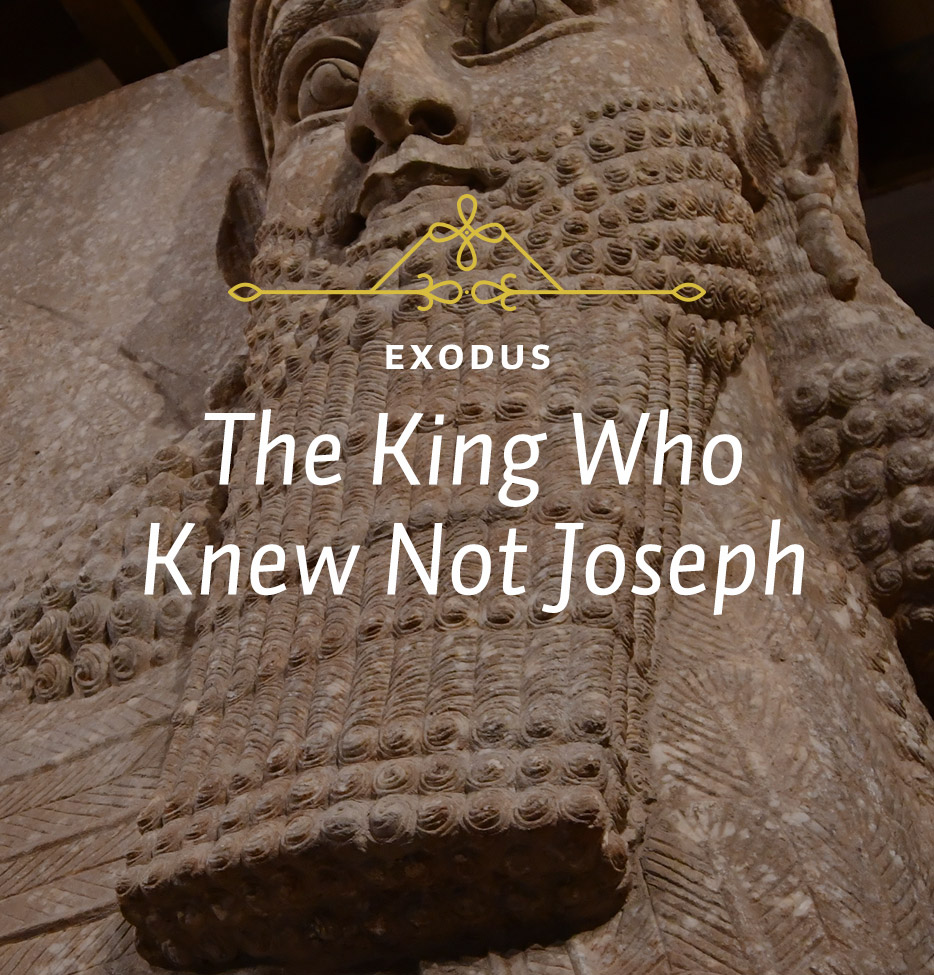The story of Moses begins in the book of Exodus. Now “exodus” means “exit,” or “going out.” And it’s called that because it’s really the story of the deliverance of the people from Egypt. Yet it’s more than that. What we read in Exodus is not only the story of the deliverance of the nation, we also read about the creation or birth of the nation. The reason I say that is that when we read the opening verses, we find that the ones who went down to Egypt initially in the time of Joseph numbered only around 70. They were just a large family. But by the time the people left Egypt they must have numbered about two million. The reason we say that is that if you look further on in the book, to Exodus 38:26, you will find that at this time, which is about two years after the exodus, there is a tally of the men over 20 years of age, and it’s given as 603,550. We have to add to that the women and the children, and when you put all of that together, you have at least two million people.
And that was just the problem, of course. As long as the family was just a small family, nobody minded. But as they began to grow and they became numerous, as many as two million, they became a threat to the Egyptians. In Exodus 1 we see that the Pharaoh was so disturbed by them, he said, “They’re likely to join with our enemies if war breaks out.” And so he settled upon a plan to oppress them, reducing their numbers, as he hoped, by forced labor. Many slaves in a system like that would die, some estimates are as much as 20% in a year. And then when he failed at that, he gave instructions that all the male Jewish babies born should be put to death. That failed, too. In all these efforts to reduce the numbers of the Israelites, we are told that God greatly blessed the people.
Egypt is the background for the exodus, and so I want to take a little bit of time to talk about Egypt’s history in order to attempt to gain some insight into the pharaohs that must have been reigning at the time of the birth of Moses and at the exodus of the people from Egypt about 80 years later.
Egypt is a very ancient land, so much so that scholars don’t even know when its history began. If you look at the Encyclopedia Britannica and read the article on Egypt, which is very extensive, you’ll find that estimates of the first of the dynasties go back as far as 5500 BC. That’s five and a half millennia before the birth of Christ. And they range forward from that day to perhaps 3100 BC, a variation of about 2,000 years which is more or less hazy in the minds of the scholars. Egypt had been, even by the latest of those dates, a thriving empire for about 1,000 years before the Jews settled in Goshen under the blessing of the pharaoh of that time.
When you have a nation that is as old as that, it’s a little hard to remember the kings. The United States is only a couple of hundred years old, and we can’t even remember the presidents. But when you have thousands of years of history, it’s hard to remember all those rulers, so scholars generally think of it in terms of dynasties.
A dynasty is a chain of rulers all from one family. And then, for one reason or another, that family would cease to rule and a new family would take over, resulting in another dynasty. When you think of it in terms of dynasties, scholars reckon thirty or thirty-one dynasties. Even that is hard to keep track of, so they also divide it into periods containing a number of dynasties. If you do that, the history of Egypt is something like this. There was an Early Period about which very little is known. Generally they think of that as the first two of these thirty or thirty-one dynasties. That was succeeded by what they call the Old Kingdom, Dynasties III to VI. Now, it was during that period that the great pyramids were built, which means that those pyramids were there for about a thousand years before the time of Moses.
The Old Kingdom was succeeded by what scholars call the First Intermediate Period, which was Dynasties VII-XI. This was a time of upheaval in Egypt when the land seemed to be taken over by local rulers. So the strong rule that had existed in the Old Kingdom broke down. That was succeeded by the Middle Kingdom (Dynasties XI [cont.] to XIII. The country was ruled from Thebes in Upper Egypt during those years.
Then there was a Second Intermediate Period (Dynasties XIV-XVII). At about this stage it becomes interesting from the point of view of Jewish history, because during the Second Intermediate Period Egypt was ruled by an alien people known as the Hyksos people. They were Semitic people and for a long time the scholars thought this was the period when the Jews were in Egypt. But this view is probably not true. During this time, when they were invaded by the Hyksos, the Egyptians realized that they would have to create a large army in order to defend their borders and extend their frontiers.






